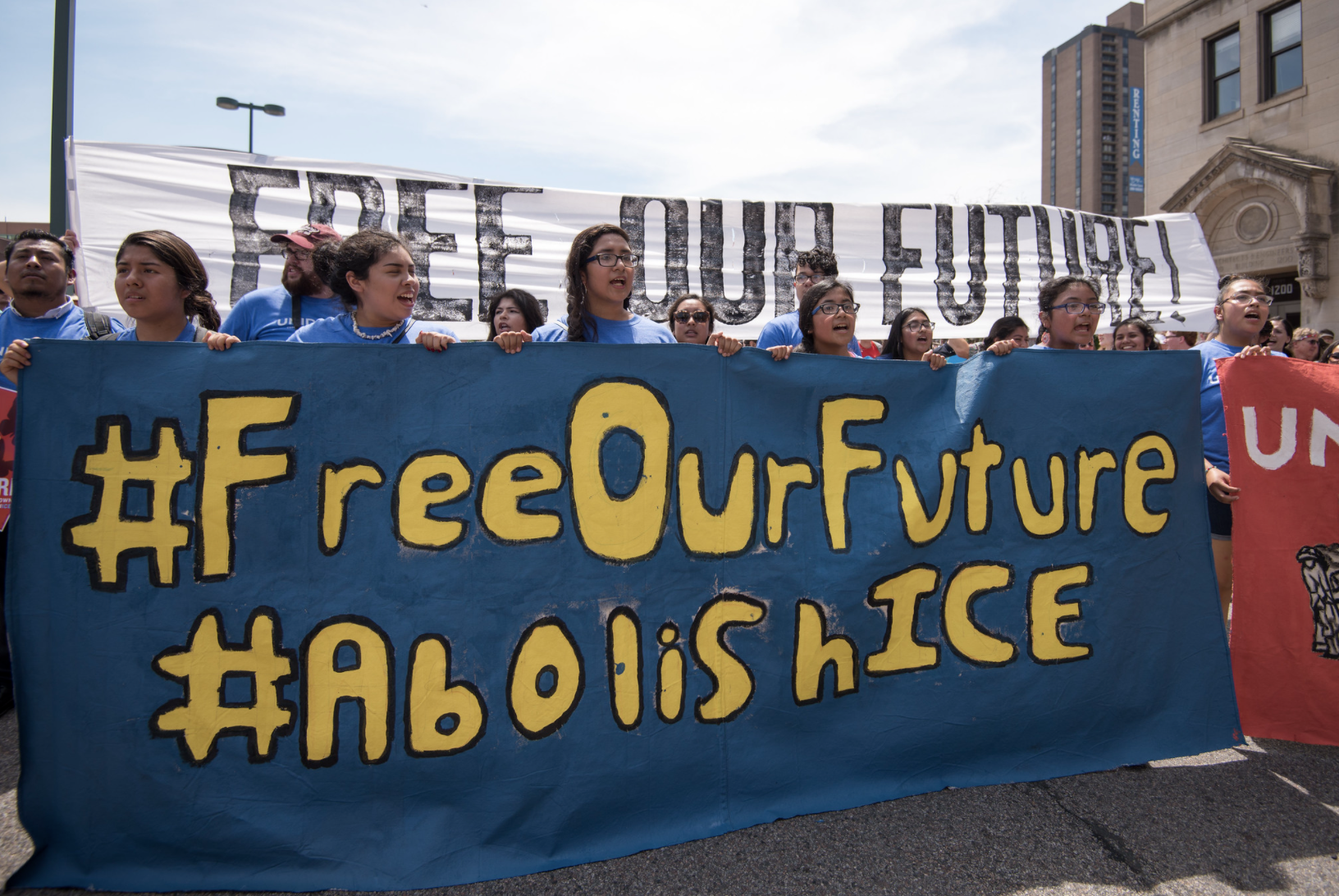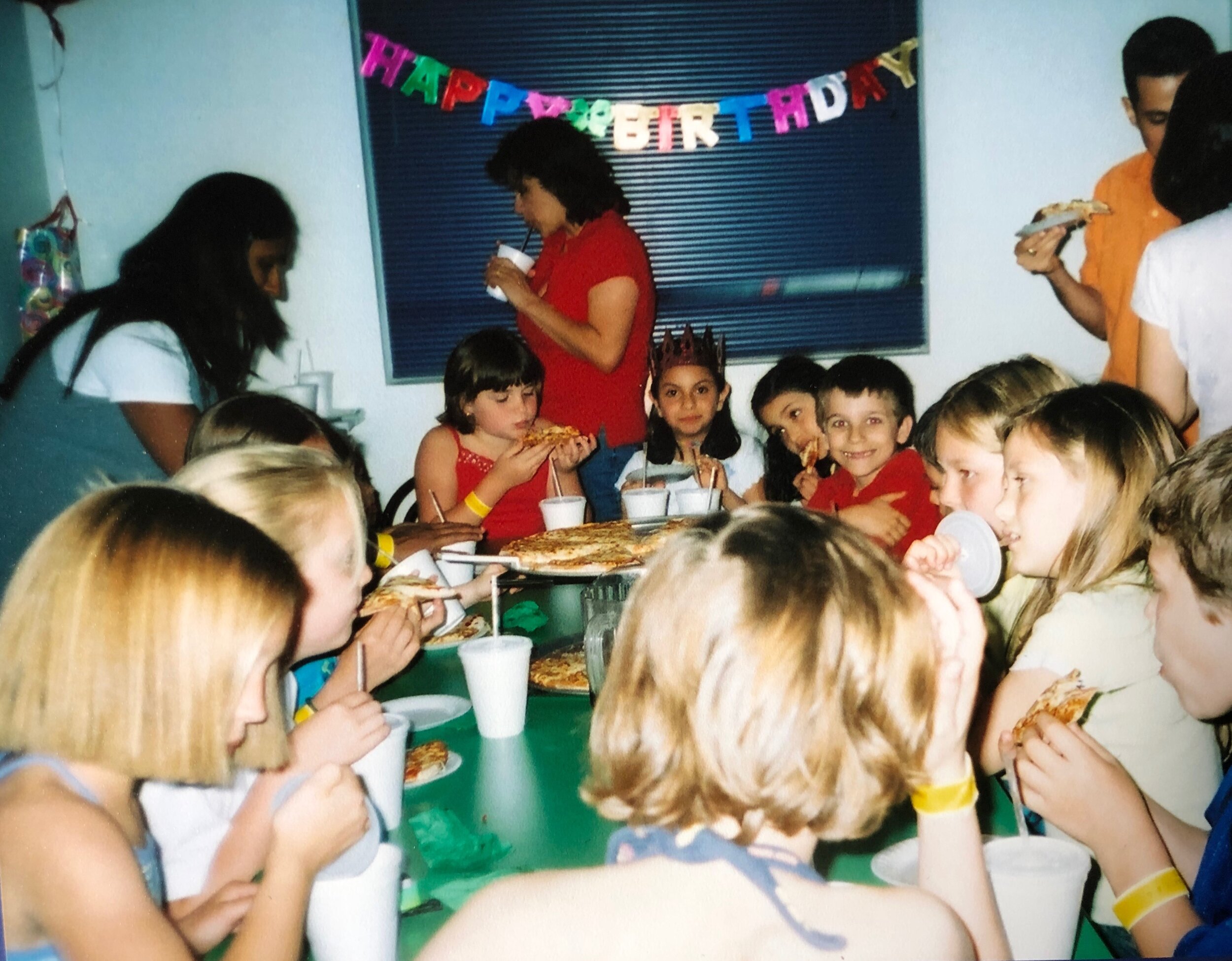By Sara Gomez
I recently concluded two and a half years working as a legal assistant at the International Refugee Assistance Project, an organization that provides legal assistance to and brings systemic litigation on behalf of refugees, immigrants, and other displaced people. As an immigrant myself, I cherished the opportunity to learn how to use the law as a tool to help families seeking safety in the U.S. I never expected that I would get so caught up in the technicalities of a lawsuit that I would ever, even briefly, lose sight of my own complex and complicated immigration journey.
During my time at the International Refugee Assistance Project (IRAP), our rockstar litigation team reached an historic settlement with the United States government in a lawsuit challenging the Trump Administration’s unlawful termination of the Central American Minors (CAM) parole program that allowed families to safely reunite in the United States. Natalia Villavicencia* is one of the young people who was able to travel to the U.S. thanks to this settlement agreement. Natalia was able to enter the country with temporary parole status and reunite with her father after years apart. The family was scheduled to meet with IRAP staff shortly after her arrival.
Navigate MN / Unidos MN 2018 Day of Action. Photo by Fibonacci Blue.
I was humbled and excited to meet Natalia and her family. Working at an organization that serves refugees and immigrants around the world, most of my contact with the people we assist is remote – phone calls, WhatsApp messages, the occasional video chat. The chance to meet a family impacted by our litigation in person felt like a treasure. I expected every member of the Villavicencia family to be just as overjoyed to be reunited in the United States as I was to meet them.
Unfortunately, I was so caught up in the victory of our lawsuit that I failed to center – or even consider – the complexity and nuance of Natalia’s feelings. Wrapped up in the weeds of the settlement agreement and travel logistics, I momentarily forgot about my own journey from Colombia into the U.S. and how full of contradictions it was. In front of four attorneys and myself, Natalia’s mother asked her if she was happy to be in the United States. To my surprise, the only sound that escaped her lips in response to that question were panicked sobs. I was taken aback. Wasn’t she happy to be with her father in the U.S.? What was the source of these tears?
Through gasps and shallow breaths, Natalia informed us that she was confused about why she had to be in the U.S., that she did not feel welcomed or comfortable at her new school, and that she wanted to go back home - home. “¡No me gusta aquí, quiero regresar a mi casa! Los niños en el colegio se ríen de mí porque no sé hablar inglés.” (“I don’t like it here; I want to go back home! The kids at school laugh at me because I don’t know how to speak English.”) She had been thrust into a brand new world in the dead of winter, a country unbeknownst to her filled with people who communicated in a language she did not speak. Once Natalia explained her utter confusion about why she could not move freely between this new country and her own, her cries made perfect sense.
As an immigrant at the mercy of borders myself, Natalia’s words unlocked a deep memory in me. I was transported back to being nine years old on a public-school playground in rural Illinois. A classmate strolled up to me, called me a beaner** and asked, tauntingly, “Where’s your green card, beaner? Do you even have one?” Not knowing what that was, I muttered, “Um, yeah… I think so?” I was confused and embarrassed, but I tried to keep my cool. I ran home after school that day to ask my mom what a green card was, if I had one, if it was, in fact, green.
Sara at her 6th birthday party in Illinois. Photo provided by author.
That was the day I learned that I am undocumented. As it turned out, I didn’t have a green card. I’m sure the quick-fire questions I asked across the kitchen table that afternoon left my mom reeling: “What does that mean? Why don’t we have green cards? Are they actually green? How do we get one? Why do we need one? Who made up these rules?” The innocence behind these questions rings more loudly today than ever, each one just as valid and pressing now as it was then. My mom somehow managed to answer each one calmly, in turn.
“I quickly realized that Natalia felt trapped inside borders she did not ask for, just like me.”
Snapping back into the room full of people around me, I quickly realized that Natalia felt trapped inside borders she did not ask for, just like me. Though our experiences and journeys are unique, her panicked cries resonated deeply with me that evening. How many times have I felt suffocated by border lines, by this country, by laws that tell me I don’t deserve to be here? By the ignorance of individuals and institutions that have called me beaner and asked, “Why didn’t you just come here the right way?” as if there’s a right way to traverse continents in the search for safety when you’re a kid whose life hangs in the balance.
There’s something deeper and complexly intertwined in Natalia’s perspective, and in both of our experiences as immigrants, that deserves to be lifted up. Doesn’t Natalia deserve to travel freely, as she wishes, to spend time with her family here and in her home country? Don’t I? I hope that by sharing her story I can honor Natalia’s bravery, complexity, and wholeness as a young person in the crossfire of border lines. I hope to provide a glimpse into how much violence such insane and inane immigration policies inflict on young people like Natalia, like myself, like millions of others. I hope to let Natalia know that she has left a mark on my heart – I have never met anyone who seemed to understand and encapsulate my own feelings about being a young person in immigration limbo better than she did the day I met her.
May we continue fighting towards a future free from xenophobia, racist immigration policies, and the weaponization of immigrants as political chess pieces.
* All names are pseudonyms for purposes of anonymity.
** Derogatory term used to describe persons of Mexican descent, in reference to the prevalent use of varieties of beans in Mexican cuisine. (https://www.nbcnews.com/news/latino/worst-slur-mexican-americans-still-mystery-some-n959616).
About the Author
Sara Gomez is a graduate of Pomona College with a B.A. in Media Studies and a concentration in Politics, a former legal assistant with the legal services and litigation teams at the International Refugee Assistance Project in New York City, and a rising 1L law school student. She can be found on twitter at @saragomezzzzz and contacted via email at sara.gomez.bohorquez@gmail.com. The views expressed here are her own.

